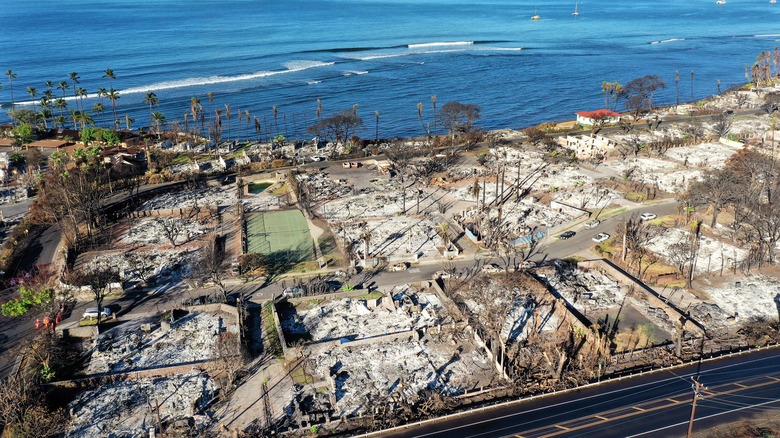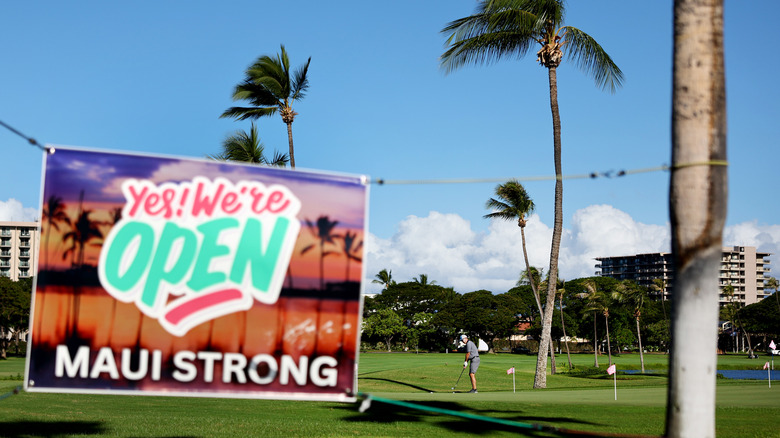Hawaii's Food Industry Hopes For Legislative Help After Maui Wildfires
On August 8, wildfires raged across Maui and destroyed 80% of historic Lahaina, which was home to about 12,000 people. The fires killed at least 100 people and destroyed over 2,000 buildings, 86% of which were residential. Isolated fires continued to burn for days, and hundreds of people remained missing a week after the event, making the day the deadliest natural disaster in Hawaii state history.
Now, Hawaiian businesses are struggling to recover from the fallout of death and destruction. The furthest sentiment from people's minds might be "May I take your order?" Still, for the estimated 4,000 food establishments in the state, getting back to serving customers is the jarring reality.
Even before the disaster, Hawaii's restaurants were up against a lot. Rising food costs and minimum wage are taxing on restaurants' regular operating costs nationwide. More specifically, Hawaii's minimum wage is increasing from $12 per hour to $14 starting January 1, 2024, and businesses are anticipating a 5% to 8% increase in medical insurance costs as well. These obstacles are further compounded by factors like labor shortages and a tanking economy, which are symptomatic of a larger cultural unrest. The state has seen an increase in break-ins and smash-and-grabs incidents as local people struggle in Maui post-wildfires. In light of the recent devastation, many local businesses are also doubling down on emergency insurance.
HRA to lead the conversation between businesses and policymakers
The Hawaii Restaurant Association (HRA) will be hosting a Legislative Meet and Greet on January 29, 2024. Per its official website, the Hawaii Restaurant Association names "legislative advocacy" as one of the main pillars of its activity, writing, "[The] [b]iggest issues currently faced include labor, health care reform and new bills that propose changes that would negatively impact the industry. HRA is active at the capitol, communicating to lawmakers how these issues impact the foodservice industry." At the January 29 summit, the HRA will be lobbying for reform in policymaking affecting the food service industry. So far, it has revealed that its platform will include a government crackdown on theft and imposing higher penalties for crime.
For now, it remains unclear how Hawaii legislators will decide to move forward considering how other U.S. state governments have stepped in to help their food industries during similar climate-related crises in the past. In 2021, the USDA declared drought disaster aid for 50 counties in California, which might sound radical, but is in reality pretty meager; farms in those 50 counties were made eligible for federal loans. After the January HRA meeting, the ball will be in the state government's court — time will tell what they choose to do with it.

